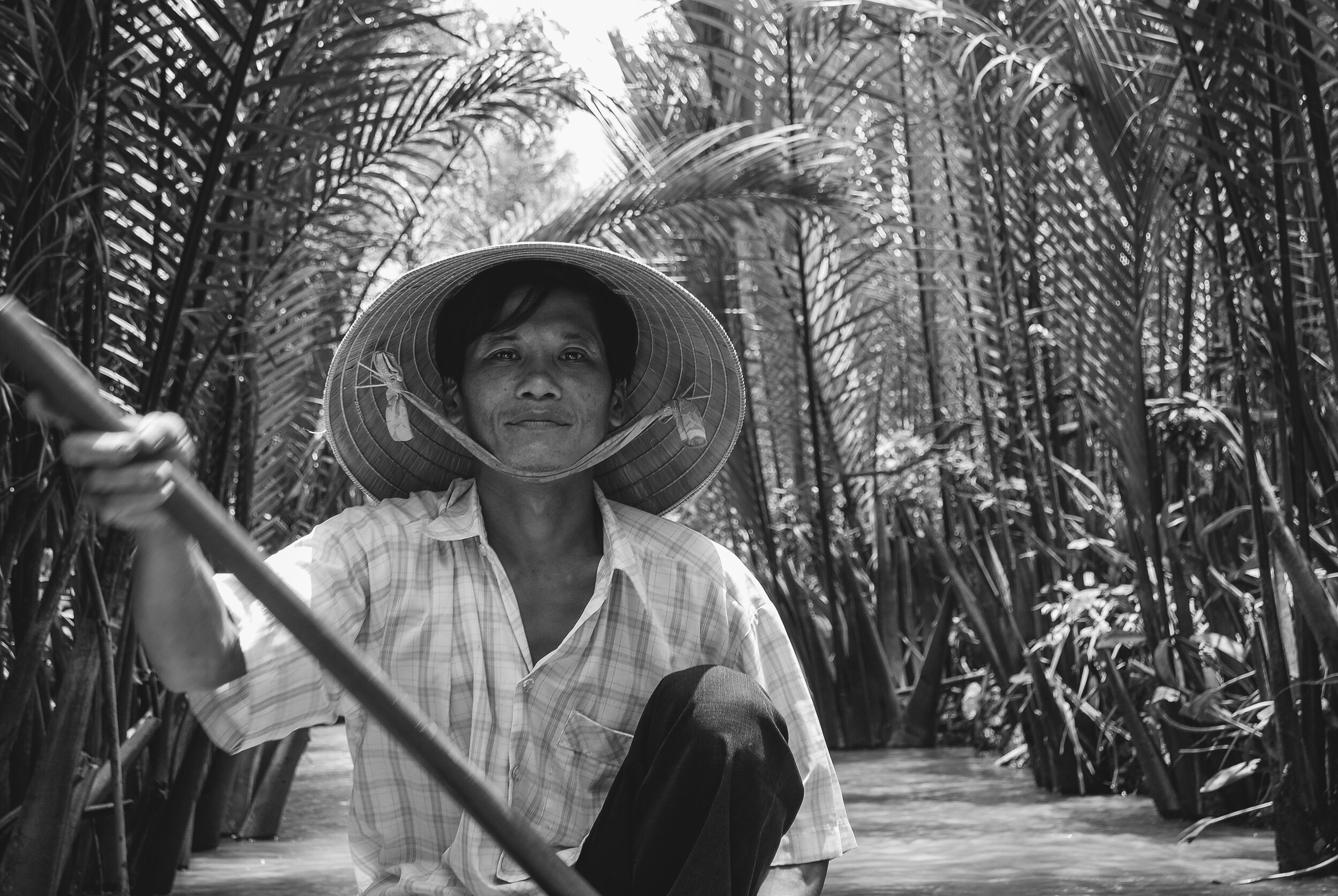
























Walking around the desolated grounds of Chiso, I saw a solitary figure sitting on the temple balcony. He stared into the distance. Much to my surprise, he spoke English. This was how I met Sakngea. He lives in the temple and owns a small farm, where he rears chickens and grows bananas. Having lost his family to the Cambodian genocide, he lives the life of a lone ranger, finding solace in his solitude.
Sakngea knows very well that justice may never be served. He can only hope. I’m glad I went to the killing fields before I met him. It opened my eyes to the heinous crimes and brought to life the voices of restless souls that our world continues to ignore.
Sakngea’s secret for inner peace? Books, long walks, and meditation with a healthy dose of cannabis.

Pathein served as a garrison town for the British after the First Anglo-Burmese War. Untouched by tourism, it is a beautiful port city on the west branch of the Irrawaddy River.
I woke up to peaceful traffic every morning - the sound of bicycle tyres, the clik-clak of horses, locals chatting, and nothing else. The streets were full of colourful outfits and countless happy smiles and greetings - with no strings attached. In fact, life goes by so slowly in Pathein that you forget about the atrocities of the Burmese Junta.

The Bajau people (sea gypsies) have no identity or passports. They spend so much time underwater that their eyes focus better when submerged. They get landsick when the occasional docking is required to refuel the boat.
The Celebes Sea, North of Sulawesi, is legendary in diving circles. Along with numerous other islands in the Indonesian archipelago, the region offers a great mix of wall-diving and shallow reefs. Indonesia is at the heart of the Coral Triangle, which encompasses most of the archipelago. Being the most biodiverse marine ecosystem on the planet, it is the WWF’s top priority for marine conservation.

Indonesia is the largest producer of palm oil. Production takes place primarily on the islands of Sumatra and Borneo, where fires are set every year to clear away forests for palm oil plantations.
Palm oil is a globally traded commodity that's used in more than half of all consumer goods, such as lipsticks, processed foods, and body lotions. American demand for palm oil has tripled over the last half a decade, driving palm oil cultivation deeper into Indonesia's rainforests and turning this crop into an existential threat to Orangutans.